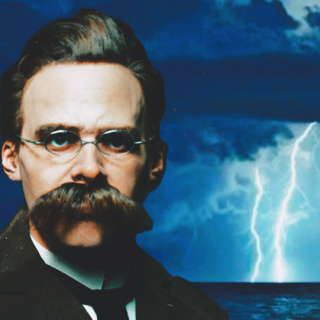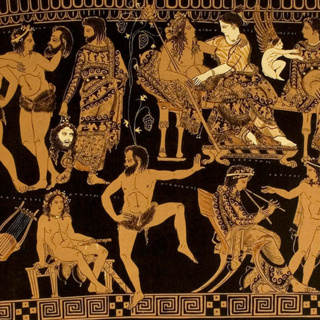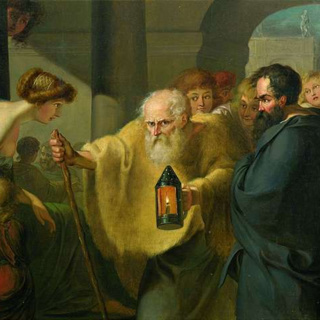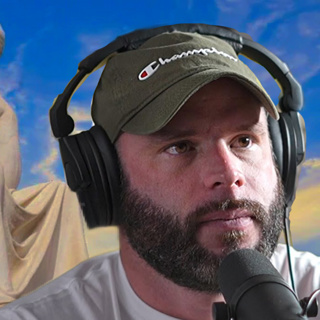
Response to Philosophy Tube
This episode is an upload to Spotify of my response to Abigail Thorn's "Was Nietzsche Woke?" video. This video was previously uploaded to Youtube.Watch me spend more time than the entire length of Abigail Thorn's video explaining why it is a superficial hit piece based on strained, bizarre arguments and outright false information. There are many "creative omissions" in Philosophy Tube's video, "Was Nietzsche Woke?": rather basic information about Nietzsche's life and his ideas is left out that would completely one's view of the information presented. In this rebuttal, we'll look at the statements in Nietzsche's own published works in Human, All Too Human (1878), Daybreak (1881), The Gay Science (1882), Beyond Good & Evil (1886) Ecce Homo (1888) & Twilight of Idols (1888) as well as selections from Nietzsche's letters, his essays, and unpublished notes assembled in Will to Power. Philosophy Tube's video relies almost entirely on secondary sources and clearly does not derive from a direct engagement with the actual texts. While I actually have read all of the primary source material, I also reference the following secondary sources in this video:The Legend of the Anti-Christ: A History by Stephen J. Vicchio (2009)Nietzsche, Philosopher, Psychologist, Antchrist by Walter Kaufmann (Fourth Edition, Princeton University Press, 1974)Nietzsche's Women: Beyond the Whip by Carol Diethe (2013, De Gruyter)I was also informed in my study by the biographies provided by Krell & Bates, as well as Curtis Cate and the work of Charlie Huenemann. Stephen Hicks' book, Nietzsche and the Nazis, while I disagree with it on many points, was also helpful in elucidating the difference between Nietzsche's view of Christianity versus that of the Nazis. Also, Robert Solomon helped contextualize the common views around eugenics in 19th century Europe.
13 Maj 1h 8min

Wandering Above a Sea of Fog #4
I talk about philosophy & music, my history as a musician, my new album, and give some updates about the future direction of the podcast.Stream the album today: https://www.psychedelicbabymag.com/2025/05/slumbering-sun-on-starmony-an-interview-with-dooms-crazy-romantics.htmlAlbum comes out tomorrow, buy it here: https://slumberingsun.bandcamp.com/Listen to us on Spotify: https://open.spotify.com/artist/7znYBHw9e9cY7KKbLXpUsS
8 Maj 48min

The Gay Science #15 (III.176-III.275)
The lightning round! The final episode of The Gay Science book III. The 100 sections we cover in this episode are all rapid-fire, short aphorisms on morality, human nature, the social life, virtue, vice, really the whole panoply of human experience!
6 Maj 3h 23min

The Gay Science #14 (III.148-III.175)
Renaissance & Reformation, the critique of saintly virtue, the color we have thrown onto life and how it differs from that of the ancient world, and Nietzsche's attempt to "untangle the knot" of his moralization of the world by returning to the style of the moral maxim. Rapid fire epigrams finish out book III, we cover a large swatch of them in this reading and will hit the remainder of the book in the final episode for book III, next week.
29 Apr 2h 5min

The Gay Science #13 (III.132 - III.147)
Discussion of the origins of Christianity as the apotheosis of sin, the Christian attack on the passions versus the Greek deification of the passions, as well as scattered remarks about German pessimism, and diet as the cause of one's metaphysics.
22 Apr 1h 47min

The Gay Science #12 (III.125-III.131)
Extended discussion of The Madman passage (#125), including analysis of the metaphysical and moral implications, the surrounding context, and other interpreters - Girard, Freud, Jung, Heidegger, and Deleuze; then, discussion of half a dozen more aphorisms that follow.
15 Apr 1h 53min

Untimely Reflections #34: Gnostic Informant
Gnostic Informant on Youtube: https://www.youtube.com/We discussed the following topics: why the Torah is probably younger than commonly believed; the influence of Hellenism on Judaism as well as the New Testament; the Carpocratians (syncretists of Greek philosophy & Christian religion); the link between Platonism & Christianity; Nietzsche's argument that the Epicureans struggled against "latent Christianity"; Christianity as a hyper-rationalist religion set against the more sophisticated theologies of the pagan world; the possibility that extinguishing the Vestal fires actually brought down the Roman Empire. We also talked about Neal's personal journey through the Christian faith into his own idiosyncratic spirituality, and an attitude that he describes as a balance of Gnosticism & agnosticism; he views a life of Gnosis (knowing) as essentially a life of skepticism in which one demands to know for oneself and reject all inherited dogma. At the end we discuss his upcoming journey to Greece & film project, during which he will interview the group setting up a new temple to Pan in Greece, and the Orthodox figures opposing them.
8 Apr 1h 50min

The Gay Science #11 (III.114-III.124)
The text proceeds from epistemology to morality. Nietzsche suggests that value judgments are at the foundation of perception. Exploration of herd instinct & herd conscience. Suggestion that the moral skepticism of Christianity was turned against Christianity. Preparation for the Madman passage.
1 Apr 1h 47min






















